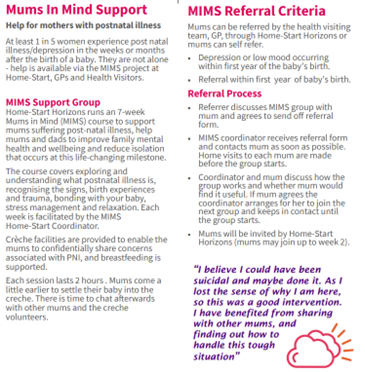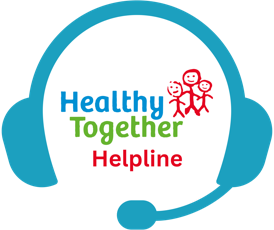This page will give you information about how to look after yourself following childbirth. It provides helpful advice and who to contact for help if you need it.
Scroll through the sections below and click on the title for more information:

Seek urgent medical help if you have any of the following symptoms:
- Sudden, very heavy or increased vaginal bleeding
- Leg swelling and tenderness or shortness of breath
- Chest pain
- Persistent or bad headache
- Worsening reddening or swelling of your breasts for more than 24 hours
- Worsening pain in your tummy or vagina
- Vaginal discharge with a bad smell
- Fever, shivering and feeling unwell
Your midwife will talk to you about your plan for postnatal care when you are discharged from the hospital. You will have care in the community by community midwives, maternity support workers and health visitors.
Please remember to:
- Register your baby’s birth within 6 weeks. You will need to book an appointment online.
- Book an appointment to see your GP at 6 weeks with your baby. They will check you are recovering well.
- Keep your stitches clean using water only. Have a shower at least once a day
- You can take regular pain relief if you are feeling uncomfortable
- To reduce the risk of infection, wash your hands before and after changing pads. Change your pads regularly
- Eat a balanced diet and drink plenty of water to avoid constipation
- Most stitches are dissolvable so they will not need to be removed
- Gently clean the wound with water every day and dry the area well
- Wear loose, comfortable clothes and cotton underwear
- Always wash your hands before and after touching your wound
It might be some time before you want to have sex again. There are no rules about when to start having sex again after giving birth. It all depends on what kind of birth you had, and how you feel emotionally and physically. You can talk to your midwife or GP if you need more information.
If you are struggling or notice signs and symptoms of mental illness during pregnancy and after you’ve had your baby, please speak to a health professional to get support as soon as possible.
Around 1 in 4 women experience mental health problems in pregnancy and during the 24 months after giving birth. You are not alone. Difficulties during this time are very common.
Help is available if you need it. Getting support can help you to recover and help you, your child and your family to live a happy, healthy life together.
Signs and symptoms to look out for include:
- feeling low, unhappy and tearful for much or all of the time
- irritability
- difficulty bonding with your baby
- overwhelming tiredness
- a loss of enjoyment or interest in anything
- not wanting to be around other people (isolating yourself)
- feeling very anxious and overwhelmed. This could cause physical symptoms like a racing pulse, sweating or thumping heart.
- feeling as though you want to avoid other people
- feeling hopeless, as though things are awful and will never get better
- thoughts about harming yourself or ending your life.
If you notice your partner is struggling after having a baby, please speak to them and encourage them to get help. It can also be difficult for fathers and partners too. Help is out there if you need it. Click here for more information.

Home Start Horizons- Mums in Mind support
The Birth Reflections Service is a listening and information giving service. It is led by midwives. It is open to all birthing people and their partners who have had maternity care at Leicester’s Hospitals.
You can get in contact with the Birth Reflections Service by phone or email:
uhl-tr.birthreflectionsmailbox@nhs.net
Tel: 0787 647 6003 (Please leave your full name and date of birth)
Contact details:
Community Midwife Office: 0116 258 4834
Leicester Maternity Services : 0116 258 6111
Leicestershire Partnership NHS Trust is responsible for the writing, publishing and updating of the content on this page.

Leicestershire Partnership NHS Trust runs a confidential secure text messaging service for parents of children aged 0-19 years called Chat Health. The service operates Monday to Friday between 9am and 5pm, excluding bank holidays. All texts will be responded to by a public health nurse (health visitor/school nurse) within 24 hours. Outside of the service working hours, you’ll receive a message back to inform you that your text will be responded to once the line reopens.
-
Leicester City:
text
07520 615381 -
Leicestershire & Rutland:
text
07520 615382

Leicestershire Partnership NHS Trust runs the Healthy Together Helpline for parents and carers in Leicester, Leicestershire and Rutland. The Helpline’s qualified health and administrative professionals offer easy to access, safe and free advice, support and signposting. Calls are answered from 9am – 4.30pm on weekdays, excluding bank holidays. Calls are charged at the same rate as calling a standard landline number.
-
Leicester, Leicestershire & Rutland:
call 0300 300 3001

Should you require urgent health advice in the meantime, please contact your GP, visit an NHS walk-in centre or call NHS 111. For emergencies, dial 999 or visit A&E.







